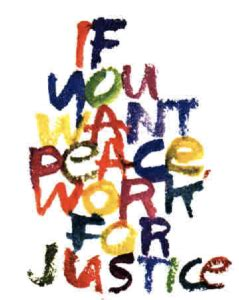The whole world observed United Nations declared International Day of Non-Violence on the 2nd October 2008, commemorating the birth anniversary of Mahatma Gandhi, the apostle of non-violence, organising several peace rallies, peace marches, walkathons etc. in protest against the on going violence and calling on all sections of people to preach, profess, propagate and practice peace. This was also the day when India’s three decades of nuclear apartheid has been wiped out, with the US Senate accepting & approving the 123 agreement, the Indo-US civilian nuclear agreement, which will allow access to US civil nuclear fuel and technology to be used for India’s ‘development’. On these two occasions, scores of people from across the latitudes and longitudes of the globe on the one hand committed to follow Gandhi, the Father of India, and his values of non-violence and on the other hand congratulated Dr. Manmohan Singh, the Prime Minister of India for his bold decisions in striking the Indo-US nuclear deal, which appears to cater the needs of the people in India. It is far to realise how non-violent is this deal to the people in India.
On the contrary to these events and happenings, Dalit Christians in Kantamal block of Boudh district, a neighbouring one to the boiling Kandhamal in Orissa had to witness violent attacks on this non-violence day. Nearly 70 houses were burnt and several Pano Dalit Christians had to flee to forests to save their lives, when nearly 400 armed religious fundamentalists marched and attacked them in five villages. The police and the State machinery cannot any more be in deep slumber, though they continue to be, when Dalit Christians in Orissa have to be burnt in the furnace of casteism and communalism. What is non-violence to these our fellow Dalit Christians in Orissa? When the apartheids of caste, violence and fundamentalism are not addressed, what good it is for the Government of India to boast of its overcoming nuclear apartheid?
Dalit Christians in Orissa today have to bear the brunt of casteism and communalism from both ends, and had to be trampled under the cruel inhuman attitude of the religious fundamentalism. Dalit Christians are attacked because they happen to be Dalits, which is oppression in the name of caste. Dalit Christians are attacked because they happen to be Christians, which is discrimination in the name of religion. More over the violence on Dalit Christians is a sheer witness of the violation of their human rights, for freedom in all fronts has been curtailed.
The other grave concern that offshoots from the saga of violence in Orissa is the rift between Pano Dalits and the Khand Tribals, who are the indigenous people who share the common ethos & culture. With the advent of the outsiders into this land, Khand Tribals have been Hinduised and Pano Dalit have been Christianised, and in recent years religion happened to be the conflicting element in this region of Orissa, and whole series of violence in Orissa has taken the religious flavour to it. If issues like land, culture, reservation & conversion happens to be the core issues that have been dividing the indigenous people in Kandhamal, I presume that these issues need to be addressed on an indigenous table and not on a religious table, which thus far has been so. Let religion and religious people withdraw from flaring up the ongoing conflict among these communities, and let a Dalit-Tribal interface be organised, so that the issues can be spelt out, addressed and solved. Here comes the role of the civil society, responsible citizens and the inter-faith communities for they need to push for such an inter-face among Dalits and Tribals for they share many things in common. Such an interface will give an opportunity to work out the convergences between the two communities, to express their divergences and to work out creatively strategies that can sustain the indigenous nature of these communities. Once these conflicts are resolved, I trust the secular fabric will retain its credibility in India, and non-violence and non-violence days will have its relevance. Together lets dream and work to achieve a country where peace will be a sustained reality.
The Pattas, our family name reminds me of our roots,our strong and proud Dalit Christian roots, for once we were no people, but God called us and made us God's people,sustains us to journey with God towards liberation and inspires us to be the channels of life. All those who share such experiences as ours are most welcome to join this blog and join hands in making liberation and freedom a reality to all those that are oppressed.
Subscribe to:
Post Comments (Atom)
In the context of the ongoing war in the land of the Holy-One, which side do you support?
When nearly 9000 people are killed in this brutal war, Which side do I support? When civilians, hospitals and places of worship, churches ...

-
When nearly 9000 people are killed in this brutal war, Which side do I support? When civilians, hospitals and places of worship, churches ...
-
Narrator: Read Acts 5:29 & Isaiah 7: 9b The global church celebrated 500 years of Reformation in 2017, which gave an opportun...
-
Introduction The theme for this week has been YOUTH AND JESUS THE NON-CONFORMIST. Jesus being the best young man this world ever produced, d...


1 comment:
It is well reflected Bharat. People are making mockery of Non-Violence Day by being violent every now and then! Celebrating a day such as this without internalizing its meaning is senseless. Thanks for sharing this reflection with me.
Kasta Dip
Post a Comment